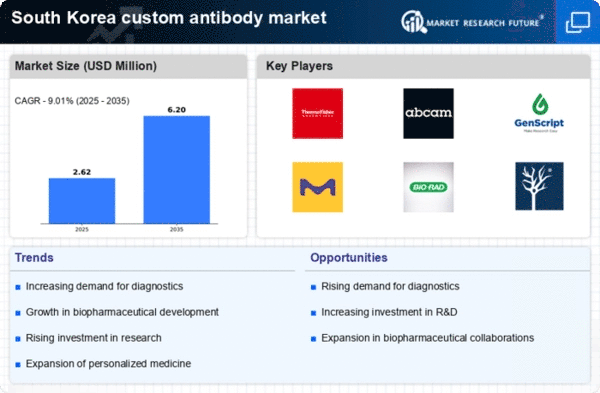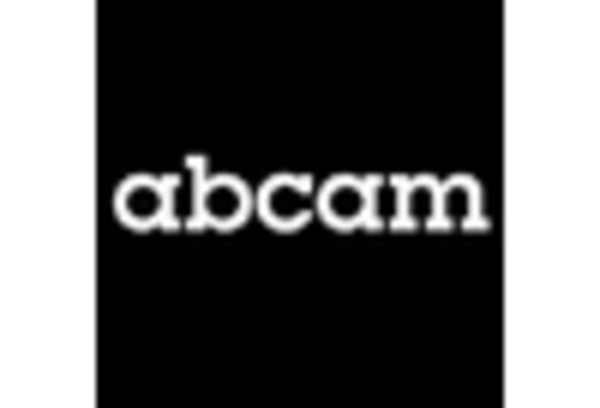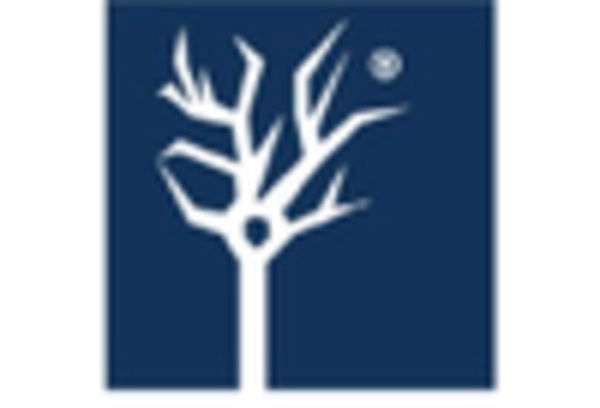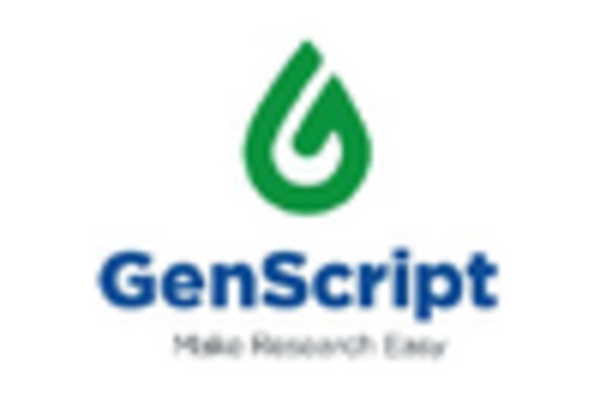Advancements in Biotechnology
The custom antibody market in South Korea is experiencing a surge due to rapid advancements in biotechnology. Innovations in genetic engineering and protein expression technologies are enabling the development of highly specific and effective antibodies. This progress is likely to enhance the capabilities of researchers and clinicians, facilitating the creation of tailored therapeutic solutions. The biotechnology sector in South Korea has seen substantial growth, with investments reaching approximately $2 billion in 2025. This influx of funding is expected to further drive the custom antibody market, as companies leverage new technologies to meet the increasing demand for precision medicine. As a result, the custom antibody market is poised for significant expansion, with a projected growth rate of around 15% annually over the next five years.
Rising Demand for Diagnostic Tools
The custom antibody market is being significantly influenced by the growing demand for advanced diagnostic tools in South Korea. As healthcare systems increasingly prioritize early detection and personalized treatment, the need for specific antibodies in diagnostic assays is on the rise. The custom antibody market is adapting to this trend by developing antibodies that can be utilized in various diagnostic applications, including immunoassays and imaging techniques. Market analysis indicates that the diagnostic segment is expected to account for approximately 40% of the total custom antibody market by 2026. This shift underscores the importance of custom antibodies in enhancing diagnostic accuracy and improving patient care.
Expansion of Biopharmaceutical Sector
The expansion of the biopharmaceutical sector in South Korea is a pivotal driver for the custom antibody market. With a robust pipeline of biologics and biosimilars, the demand for custom antibodies is likely to increase as companies seek to develop novel therapeutics. The biopharmaceutical market in South Korea is projected to reach $10 billion by 2026, with a significant portion attributed to antibody-based therapies. This growth is expected to stimulate the custom antibody market, as biopharmaceutical companies require specialized antibodies for research and development purposes. The interplay between biopharmaceutical advancements and custom antibody production is likely to create a dynamic environment for innovation and collaboration.
Increasing Prevalence of Chronic Diseases
The rising incidence of chronic diseases in South Korea is a critical driver for the custom antibody market. Conditions such as cancer, autoimmune disorders, and infectious diseases are becoming more prevalent, necessitating the development of targeted therapies. The custom antibody market is responding to this demand by providing specialized antibodies that can be used in diagnostics and treatment. According to recent health statistics, chronic diseases account for over 80% of healthcare expenditures in South Korea, highlighting the urgent need for innovative therapeutic solutions. This trend is likely to propel the market forward, as healthcare providers seek effective treatments that can improve patient outcomes and reduce long-term costs.
Growing Investment in Research and Development
Investment in research and development (R&D) is a significant driver of the custom antibody market in South Korea. The government and private sector are increasingly allocating resources to R&D initiatives aimed at enhancing antibody production and application. In 2025, R&D spending in the life sciences sector is projected to exceed $1.5 billion, reflecting a commitment to fostering innovation. This investment is likely to lead to breakthroughs in antibody technology, thereby expanding the range of applications in therapeutics and diagnostics. The custom antibody market stands to benefit from these advancements, as new products and services emerge to meet the evolving needs of researchers and healthcare professionals.
















